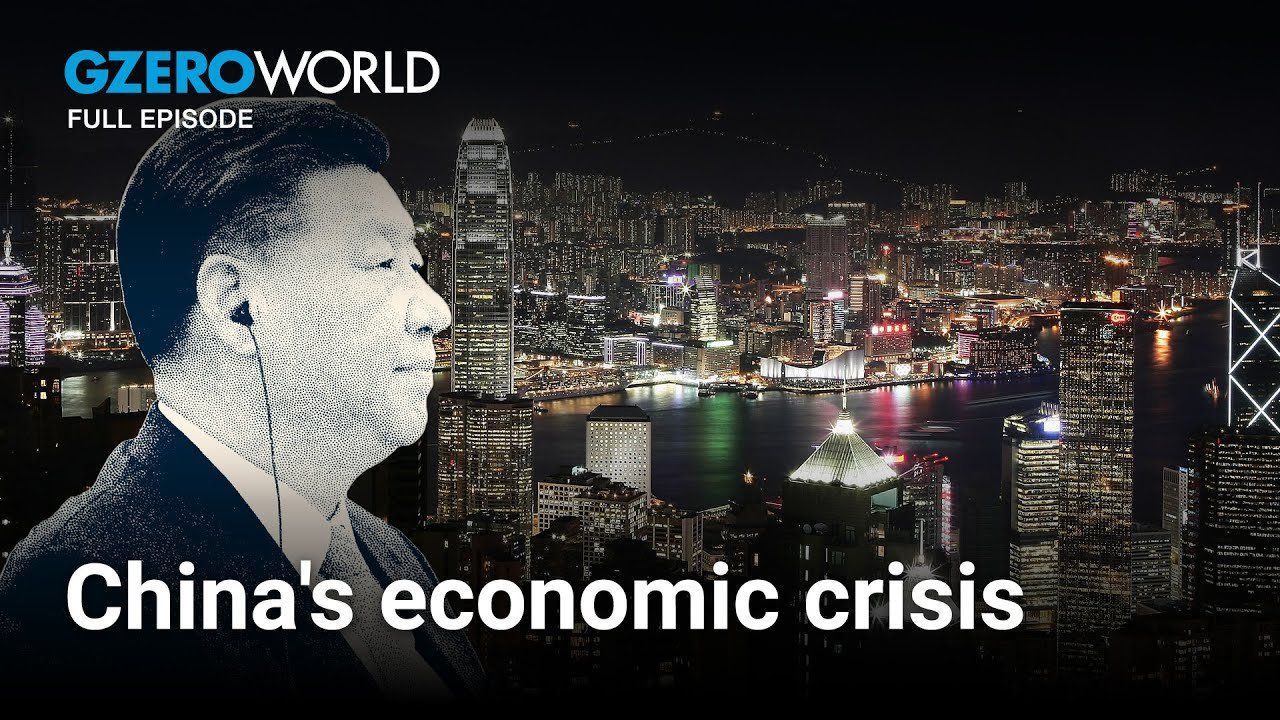August 14, 2023
China’s economy has averaged about 10% annual growth year over year for the past four decades. It’s undoubtedly the biggest economic success story of our lifetime, but how long can that last?
Shaun Rein, founder and managing director of the Shanghai-based China Market Research Group, sits down with Ian Bremmer on GZERO World to talk China's post-COVID recovery, Xi's crackdown on the private sector, and why the last year has turned him from a bull to a bear on China's economic outlook.
Annual GDP growth has been on a relative decline since 2010, barring a big jump coming out of the pandemic. Decades of infrastructure investment have left local governments drowning in debt. Almost three years of zero-COVID politics ground China’s economy to a halt. Youth unemployment is surging to record highs and expected to keep climbing.
At the same time, President Xi Jinping is moving China away from the pro-investment policies of his predecessors in favor of ideological and national security priorities. But public support for China’s Communist Party is starting to show cracks, especially among citizens in wealthy cities who experienced the brunt of China’s brutal zero-COVID policies.
Can communist ideology mixed with capitalist ambition sustain growth into the future? Is Xi setting up China for another 4 decades of economic success? And what do China’s citizens make of its return to socialist roots?
Watch GZERO World with Ian Bremmer every week at gzeromedia.com/gzeroworld or on US public television. Check local listings.
From Your Site Articles
- China flirts with deflation. Why is that a bad thing? ›
- We need to talk about China’s economy ›
- The Graphic Truth: China's old vs. new zero-COVID ›
- Birdsong and stolen cherries: Lockdown life in Shanghai ›
- Top stories of 2023: GZERO World with Ian Bremmer - GZERO Media ›
- Davos 2024: China, AI & key topics dominating at the World Economic Forum ›
- Is the global economy finally on the right track? - GZERO Media ›
More For You
Americans are moving less — and renting more. Cooling migration and rising vacancy rates, especially across the Sunbelt, have flattened rent growth and given renters new leverage. For many lower-income households, that relief is beginning to show up in discretionary spending. Explore what's changing in US housing by subscribing to Bank of America Institute.
Most Popular
Walmart sponsored posts
Walmart’s commitment to US-made products
What's Good Wednesdays
What’s Good Wednesdays™, February 4, 2026
World Central Kitchen staff hand out free soup in a neighbourhood that experiences electricity and heating outages following recent Russian attacks on Ukraine’s civilian infrastructure during subzero temperatures in Kyiv, Ukraine February 3, 2026.
REUTERS/Thomas Peter
1,170: The number of high-rise buildings in Kyiv that were left without heating following a barrage of Russian attacks last night on Ukraine’s capital and its energy facilities, per Kyiv Mayor Vitali Klitschko.
Protesters gather during a candlelight vigil, and interfaith prayer at Fort Lauderdale-Hollywood International Airport as airport workers and faith leaders rally calling on the federal government to extend Temporary Protected Status for Haiti on Jan. 28, 2026.
Diaz/Miami Herald via ZUMA Press Wire
Over the past five years, Haiti has endured extreme political turmoil, escalating violence, and one of the world’s worst humanitarian crises.
Microsoft unveiled a new set of commitments guiding its community‑first approach to AI infrastructure development. The strategy focuses on energy affordability, water efficiency, job creation, local investment, and AI‑driven skilling. As demand for digital infrastructure accelerates, the company is pushing a new model for responsible datacenter growth — one built on sustainability, economic mobility, and long‑term partnership with the communities that host it. The move signals how AI infrastructure is reshaping local economies and what people expect from the tech shaping their future. Read the full blog here.
© 2025 GZERO Media. All Rights Reserved | A Eurasia Group media company.
